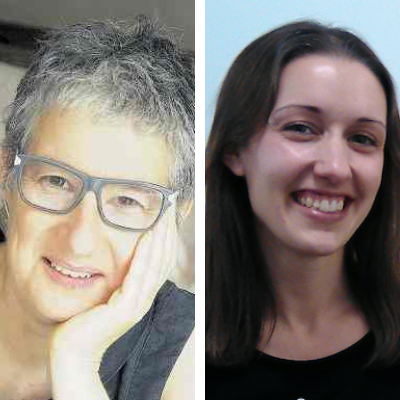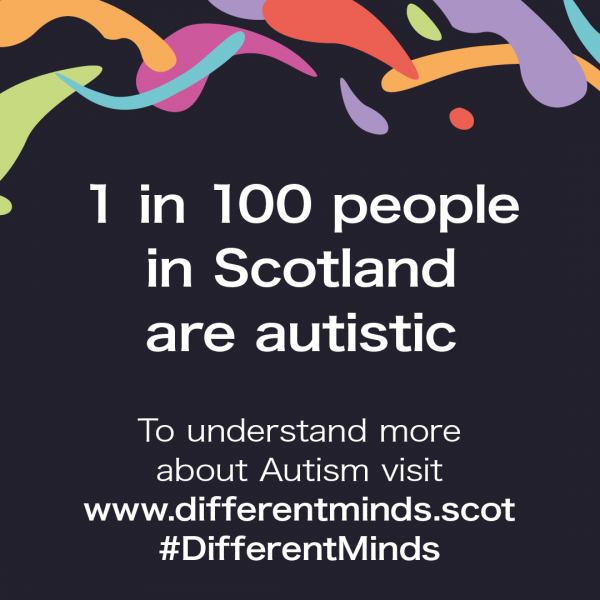University Challenged: Why are autistic people at higher risk of dropping out of university?
Jack Howes, Philanthropy Manager in collaboration with Dr Eilidh Cage, Lecturer in Psychology at University of Stirling
University is supposed to be a happy and rewarding time, with opportunities to learn, meet new people and form lasting relationships. However, the reality can be very different. One survey of over 37,000 students found almost 10% considered self-harming often or all the time (i). Rates of anxiety, stress, requests for counselling services and suicides rise by the year (ii). Given that around half of young people now go to university (iii), such statistics are highly concerning.
For autistic people, their experiences as a collective are often worse and they are seemingly at higher risk of dropping out of university (iv). In the autumn of 2011, as a hopelessly naïve 18-year-old whose life experiences extended to being miserable at school and playing Football Manager at home, I went to university to study History. After one term of crippling loneliness, reclusiveness and awkwardness, I left, never to return and receiving an autism diagnosis six months later. Last year, when my good friend and collaborator Dr Eilidh Cage suggested researching the experiences of autistic people who drop out of university(v), I couldn’t have been happier to help.
Based on a previous online survey (vi), we devised questions for interviews on autistic people’s experiences of dropping out of university. We undertook fourteen in-depth interviews with autistic people who had studied across the UK. After scrutinising the interviews, we identified patterns and shared experiences in the interviewees’ testimonies. Common themes from the interviews were organised into three broad categories - systemic issues, challenges within universities themselves and life after dropping out.
Looking into systemic issues, several of our interviewees, like myself, were only diagnosed as autistic after leaving university. Many felt that with an earlier diagnosis their time at university could have been more productive and enjoyable. Late diagnoses linked to a lack of understanding and acceptance of autistic people. One of our interviewees told us that every healthcare professional she had seen about a diagnosis had told her: ‘You’re not a boy, you can’t have autism’. At university, the lack of understanding meant our interviewees felt uncomfortable and they received insufficient or inadequate help with their studies.
Socialising proved a huge problem for our respondents. They often felt like outsiders, excluded from the lifestyles of their neurotypical counterparts. To quote one interviewee:
“I just couldn’t fit in, the whole time I was there I was always just on the outside looking in at everyone else having the time of their lives... I just wondered when that was ever going to happen to me.”
Feeling like an outsider is a common problem for autistic people. University, where many students are outwardly socialising and making friends, can induce greater feelings of loneliness. One point made by our interviewees was that other students “crowdsourced” their understanding and helped one another. Our interviewees therefore missed out educationally because of their outsider status.
Such problems can culminate in mental health problems, which we know autistic people are at higher risk of experiencing (vii). In our research, one interviewee described how her PTSD became so bad at university she would not lock her bedroom door at night in case she couldn’t get out. In many cases, our respondents were already experiencing mental health difficulties and university added to them.
These are all issues endemic in the autistic community, requiring radical societal change. We also identified several problems exclusive to universities which can be directly tackled.
The first of these was the sheer shock of moving to university. Living away from home for the first time (if applicable), in an environment with much noise and movement, proved overwhelming. Our correspondents were left with few places to retreat and recuperate.
High expectations from a personal and academic perspective also proved suffocating, with interviewees feeling unprepared for life at university. Without structure to their work, difficulties quickly became apparent:
“What I found difficult was the amount of independent study and the fact we were supposed to be doing so much of it ourselves.”
These problems led to increasing disengagement. Our correspondents were left floundering, struggling to meet deadlines and performing below their potential. This, combined with the other identified issues, led to gradual, rather than sudden, disengagement:
“As time went on my motivation dropped, to the point where I basically got nothing of substance completed at all towards my final year dissertation”.
Contributing to all this was an absence of proactive support for autistic students. One interviewee described how: “The head of the course, he wasn’t very polite, he was quite derogatory actually. And he was basically saying ‘can’t you bloody manage this’. There was absolutely no one at any point who said to me ‘are you struggling?’ or ‘can we help you with something?”
For our interviewees, they were left with little choice but to drop out of university. After leaving, many looked back at their time at university and felt like failures. Some had since been able to process what had happened, and looking back, they felt autistic people in similar situations had to do what was right for them: “Don’t blame yourself if it does happen – there are so many reasons university doesn’t work out for someone, and some of them are very fixable with time, experience, and more support. Lots of autistic people end up doing a lot better as mature students.”
These findings present the question of what could be done to help autistic students and reduce the risk of dropping out. We believe the following would be hugely beneficial:
• Improved autism understanding and acceptance from non-autistic staff and students, perhaps through training.
• A sensory environment which is designed to suit and understand the needs of autistic students.
• Increased mental health support which is suitable for autistic people.
• Greater structure in academic work, with adaptations so students can learn at their own pace and course materials shared in advance.
• More time before starting university to get acclimatised, perhaps through transitional programmes.
• Proactively identifying and helping students who may be becoming disengaged, with staff becoming trusted confidantes of autistic students, not dismissive of their struggles.
We all have a right to study, learn, earn a degree and live happily. Autistic students have been denied that. This needs to change.
References
i Pereira et al. (2019). University Student Mental Health Survey 2018. The Insight Network.
ii Thorley, C. (2017). Not by degrees: Improving student mental health in the UK’s universities. Institute for Public Policy Research.
iii Department for Education (2019). Participation rates in Higher Education: Academic years 2006/2007 – 2017/2018.
iv Anderson, A. H., Stephenson, J., & Carter, M. (2017). A systematic literature review of the experiences and supports of students with autism spectrum disorder in post-secondary education. Research in Autism Spectrum Disorders, 39, 33-53.
v Cage, E. & Howes, J. (in press). Dropping out and moving on: A qualitative study of autistic people’s experiences of university. Autism.
vi Cage, E., De Andres, M. & Mahoney. P. (2020). Understanding the factors that affect university completion for autistic people. Research in Autism Spectrum Disorders, 72, 101519.
vii Lai, M. C., et al. (2019). Prevalence of co-occurring mental health diagnoses in the autism population: a systematic review and meta-analysis. Lancet Psychiatry, 6 (10), 819-829.





